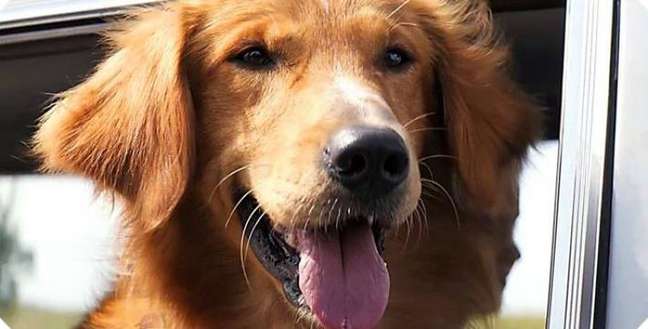Studies show that grooming works on cats and dogs as much as it does people and helps prevent disease.
I had seven dogs in one lifeincluding my current dog, Annie, and I’ve never brushed my teeth their. And I think I’ve also made rude comments to friends and colleagues who brushed their dogs’ teeth. Now I apologize for these comments. But to be honest, I wasn’t alone when I thought, “What ?! Are you kidding? Brushing a dog’s teeth?”
or dental care for pets it is a relatively new field and the notion of home care is even more recent. Lori Teller, President of American Association of Veterinary Medicine, said veterinarians began regularly incorporating pet dental care into their work about 30 years ago. “As we learned more about dental care for our dogs and cats, it became more obvious that brushing your teeth makes a difference.”
Research shows that regular brushing works for cats and dogs as much as it does for people. Helps prevent gum disease, which can have dire consequences. The bacteria that infect the gums can reach the bloodstream and from there to other organs, attacking the heart, liver and kidneys and shortening the dog’s life.
Three facts about animal health that every tutor needs to know
Paying attention to preventative care can improve the quality of life and longevity of pets.
Pebbles, the oldest dog in the world, dies at 22
Fox terrier dog was crowned with the title in June; she died of natural causes
Fleas and ticks can concentrate in the environment and attack humans; learn to prevent
Even without animals, homes can cause infestation with these parasites that transmit various diseases.
In nature
The results included a comment from my Swedish alter ego saying, “Wolves don’t brush their teeth.” What about the millions of stray dogs that live without dental care? True, Enlund agreed: Neither wolves nor stray dogs have access to dental care, but that doesn’t mean their teeth are fine. “It is very common for wild animals to have tooth problems,” he warned. And wild animals often don’t live long enough to have some of the problems our pets face.
Enlund found that tutors’ biggest misconceptions were that diet and bone chewing aided oral health. He said there is simply no good information on the effect of the diet. People make a lot of assumptions, but he assured them that there is a lack of rigorous studies. Bones, he said, can damage dogs’ teeth if they’re too hard. Some chew toys promote oral health, she explained.
According to Enlund, although brushing their teeth improves dogs’ oral health, there are differences between breeds: smaller dogs have worse dental problems than larger breeds. And he recalled that some dogs are lucky enough not to have problems with their teeth. “So I understand tutors who don’t see the point in brushing their teeth,” she admitted.
Our last dog was one of them – Sophie, a cross between a Labrador retriever and an English setter – and she may be able to hunt groundhogs in the suburban afterlife. Each year, our vet marveled at the perfect condition of his untreated teeth.
Having established that brushing a dog’s teeth is a good thing, I called a few owners I have interviewed over the years, intrigued by their habits. I asked them, “Do you brush your dog’s teeth?”
Alexandra Horowitz, canine cognition scientist at Barnard College and author of books on the nature of dogs, including the recent The year of the puppy, revealed that he brushed his dog’s teeth. “But I don’t do it as often as I should,” she admitted. I was happy to hear that because it felt like a level of dental care I could get.
Lori Gruen is a Wesleyan University philosopher, chimpanzee advocate and writer of animal ethics – her most recent book is Animal crisis: a new critical theory. She reported having a daily routine with her three rescued dogs, using baby wipes and brushless gels, in addition to brushing. Taz, a rescued greyhound, has bad teeth and needs to brush his teeth. Eli, an Australian mini-shepherd, has bad teeth but only allows brushing once in a while. And Zinnie, a German Shepherd / Pyrenean dog, “has great teeth, but he wants me to brush his too, so I don’t get lost.” This kind of variation in response is something to keep in mind. Your dog may love to brush. Or not.

Clive Wynne, a psychologist studying canine behavior at Arizona State University and author of The dog is love, commented that he doesn’t brush his dog’s teeth, Zephos, because his breath is good, so he doesn’t detect any problems. I have met and licked by Zephos, and I can also say that he does not have bad breath.
How to convince the animal?
If you want to brush your dog’s teeth, the next question is: how? First, just get a toothpaste and toothbrush designed for pets. Fluoride is not good for dogs and they don’t spit it out.
Some brushes are fingertips. Experts suggest letting the dog smell and taste the toothpaste first. After a while, insert the brush. And reward your dog with treats if he allows you to brush his teeth.
Oh, what about cat teeth? “In the ideal world, even people would brush their cats’ teeth,” she noted. “We certainly recognize that it can be a challenge.”
+The best content in your email for free. Choose your favorite Earth Newsletter. Click here!
Source: Terra
Benjamin Smith is a fashion journalist and author at Gossipify, known for his coverage of the latest fashion trends and industry insights. He writes about clothing, shoes, accessories, and runway shows, providing in-depth analysis and unique perspectives. He’s respected for his ability to spot emerging designers and trends, and for providing practical fashion advice to readers.




![Plus Belle La Vie Adher: That’s what you expect in an episode 330 Monday, May 12, 2025 [SPOILERS] Plus Belle La Vie Adher: That’s what you expect in an episode 330 Monday, May 12, 2025 [SPOILERS]](https://fr.web.img5.acsta.net/img/8e/0d/8e0d0b1fdc2a29bd669b347ab0baa14c.jpg)


